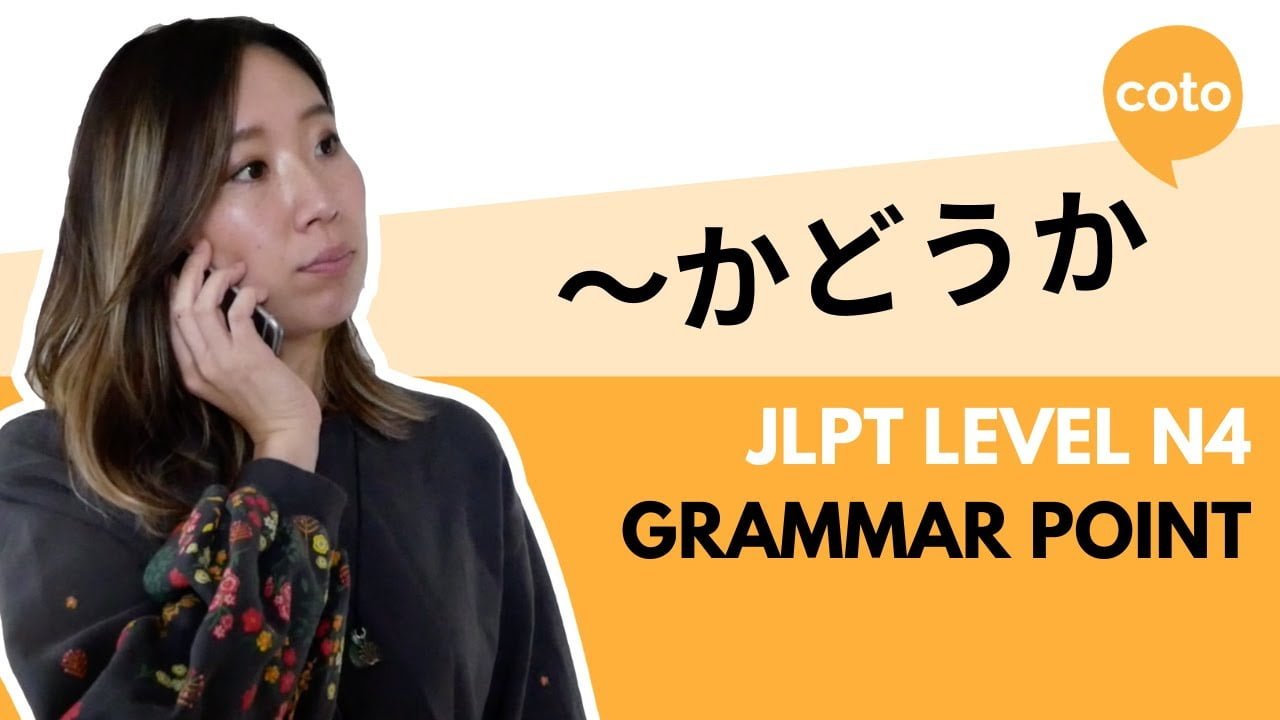In English, we often use “whether or not~” in various contexts. But do you know how to express this phrase in Japanese?
Whether or not you know how, in today’s blog we examine the JLPT N4 grammar point: 〜かどうか – meaning “whether or not”. This is a useful word to know as it has different uses in the Japanese language.
First watch Yuka-sensei explain it in the video above, and then recap with this companion blog!
How to Use the JLPT N4 Grammar Point: 〜かどうか (whether or not~)
As stated in the introduction, this JLPT N4 grammar point simply translates to “whether or not” in Japanese: 〜かどうか. It can also be translated to mean “I don’t know if~”.
The form is:
Short form + かどうか + わかりません
At the end of the sentence, there are other words you can swap out with わかりません。These include: 覚えていません (I do not remember), 忘れました (I forgot), まだ決めていません (mada kimete imasen), and other words like these.
Let’s look at some examples!
Example 1
A: 今年の夏休みに旅行に行きますか?
kotoshi no natsu yasumi ni ryokou ni ikimasu ka?
Are you going to travel anywhere this summer?
B: 旅行に行くかどうかまだ決めていません。
ryokou ni iku ka dou ka mada kimete imasen.
I haven’t decided yet whether or not I will travel.
In this example, Yuka-sensei obviously does not know yet if she will travel for the summer or not.
Another way of translating this is: “I haven’t decided if I will travel or not yet.”
Let’s look at another example.
Example 2
今年、JLPTを受けるかどうか分かりません。
kotoshi, JLPT o ukeru ka dou ka wakarimasen.
I don’t know whether or not I will take the JLPT this year.
Here, Yuka-sensei is asked if she will take the JLPT this year or not. But she doesn’t know!
This is why she replies with “I don’t know whether or not / 〜かどうか分かりません.”
The sentence structure is quite simple. The short form verb JLPTを受ける “to take the JLPT” followed by 〜かどうか分かりません “I don’t know whether or not~”.
Most likely, however, she won’t need to take it as a native speaker 😉
So we have figured out verbs – but what about adjectives?
Example 3
便利かどうか分かりません。
benri ka dou ka wakarimasen.
I don’t know whether or not it is convenient.
便利 (benri) – “convenient” – is a な adjective. Typically な adjectives are followed by だ. However to use them with 〜かどうか, omit だ.
This rule applies for nouns as well.
Ex: 無料かどうか (whether it is free or not).
Interested in Online Group Japanese Lessons?
Want to learn Japanese online in a small-classroom environment?
We are thrilled to announce that we are now offering Online Group Japanese Lessons!
Click the link to register a free account, or if you have any questions please send us an inquiry form at www.cotoacademy.com/contact
